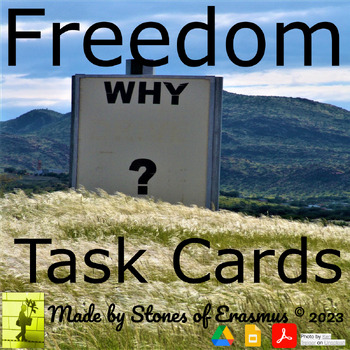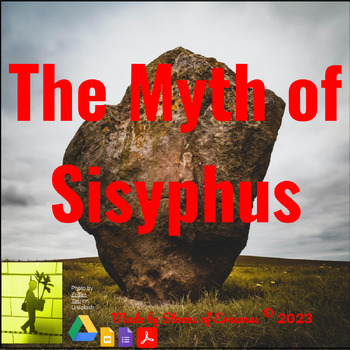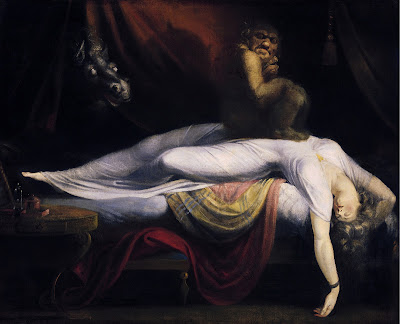As a kid, I dreamed of becoming an adult. Join me on a reflective journey of personal transformation—through youth, monastic life, teaching, and the Nietzschean notion of amor fati—as I navigate the complexities of turning forty with hope, introspection, and an unyielding embrace of life’s uncertainties.
 |
| Me in a family Christmas photo—I'm like nine or ten (circa 1989) |
As a kid, I dreamed of becoming an adult. From my early adolescence to the present, my life has been marked by transformative periods of personal growth and self-discovery. I see these phases as chapters, each contributing to my evolving identity as an individual and as an educator.  |
Me in the Late Nineties Entering Ms. Decker's Freshman Biology Class
Image Credit: Mandeville High School Yearbook |
Youthful Exploration (Ages 12 to 18)
Between the ages of 12 and 18, I was in a stage of youthful exploration, where my interests spanned from joining the book club and library club to participating in theater. I started understanding my identity better, acknowledging my sexuality, and embracing my “Louisiana-ness.” This was also a period of profound spiritual exploration as I deeply engaged with Catholicism. At the same time, I was fortunate enough to travel and broaden my perspectives, continually feeding my voracious appetite for reading and learning.
The ‘Monastic Period’ (Ages 18 to 28)
The next ten years, from 18 to 28, I describe as my “monastic period.” I embraced a life of simplicity and devotion as a Benedictine in the seminary. Besides living in Europe, I completed my undergraduate and graduate studies during this time. The benefits were many: a carefree existence without the worry of rent or expenses. However, this period also marked a time of suppressed sexuality—an important aspect of my identity.
Shifting Gears: Teaching and Life Changes (Age 28 and Onward)
At 28, I decided to leave the monastic life and ventured into the world of teaching high school. This marked the beginning of another transformative chapter that spanned 14 years. During this time, I earned a second master’s degree, taught in various New York neighborhoods, and I finished an advanced certification to teach adolescent English from Hunter College. It’s a defining moment as I’m equipped with a robust educational background and valuable experience.
 |
| Me in my early 30s |
Comparing Generations, Embracing the Future
Reflecting on these experiences in my 40s, on the cusp of turning 45 years and one month old (tomorrow), I can’t help but make comparisons to my mother’s life at my age—hers was marked by tumultuous times. Today, Mom sent me a sweet text message (funny how when she was in her 40s, she had a pager):
“I pray you are having a good day. Stay safe!! I’m proud of the hard work you do. Love you!—Mom!”
Mom had it tough—both of her parents had died before she graduated high school. She divorced bitterly from my father after a marriage of twenty years. She had Cancer, then a series of other health setbacks—and then a diseased aorta—but she made it through strong each time. Mom attributes it to her faith. I attribute it to her tenacity and very strong ego (but not egotistical).
As I consider my own future, and think of my own troubles, they pale in comparison. I live a single life; I am a high school English teacher, and I don’t own a house or a car (but I live in New York City, so that’s normal). I still hold onto the belief that I can cultivate a happier existence than the generations before me. I am excited about making decisions that align with my aspirations and moving forward, free from self-imposed limitations.
But it is scary.
Navigating the Complexities of Adulthood
The last 14 years have been a challenging journey—one where I truly learned to navigate the complexities of adulthood. I went from hoping and dreaming for financial independence to living in different cities, with a host of different living situations along the way (and did I mention I was once a Benedictine monk?). These experiences have empowered me to set ambitious goals for myself and instilled the confidence that I am the architect of my own destiny.
Nietzsche’s Amor Fati and the “Loneliest Loneliness”
Is it Nietzsche who wrote about amor fati—loving your fate, your destiny, embracing one’s limitations not as weaknesses but rather as signs of fallibility, yet also a freedom from illusion? I am finite. Attempting to contemplate the infinite. Now—of course, those are nice philosophical musings. It is easier to embrace amor fati when all goes well—but what about that “loneliest loneliness” Nietzsche writes about? Even then, my response must be, romantically, “yes!”
Yet I find myself more like an outlier—where the excitement of my days are in the peripheries: the early morning hours when I wake up, the brief encounters with commuters on the Q66 bus, or the after-work hours of talking to a friend, or sipping a Coke Zero while watching the sun set at the World’s Fair Marina in Flushing. The rest of my days—work—seem like ephemera. It is the off-days, the in-between things that really matter. But the log of the everyday gets to me. Isn’t that what modernists call the “rat race,” epitomized in comedy form with Dolly Parton, Lily Tomlin, and Jane Fonda in Nine to Five?  |
| Me in my room in New York City in My 40s |
On Being “Over the Hill”
No one has pity on you any longer when you’re over the hill—especially if you’re employed, salaried, and confine yourself to the creative profession or some other form of non-manual labor. “Be happy. Suck it up. You could have it worse.”
But I still think—now that I am an adult, I dream of becoming a kid.
Final Thoughts
Turning forty-something—and inching toward 45—feels like standing on a precipice. It’s a moment filled with fear, excitement, and the relentless drive to keep going. Nietzsche’s philosophy of amor fati resonates deeply: Embrace all that life offers, the joys and the hardships alike, while acknowledging our finite nature. Yes, it’s scary. Yes, it’s lonely at times. But this is the space where growth, meaning, and genuine contentment can flourish. And, perhaps, it’s also where the childlike wonder hidden inside us can reemerge, guiding us to rediscover the spark we once knew in youth.
Postscript
Thank you for reading, my dear readers of Stones of Erasmus. May this reflection inspire you to keep dreaming, keep questioning, and keep embracing all that comes along the path of growing older—and, indeed, growing up. If you are a newbie to my blog, drop a follow. If you are someone who has been with me a long time—let me know. If you are a teacher, and want my resources, go to my humanities-based store on TpT.

















